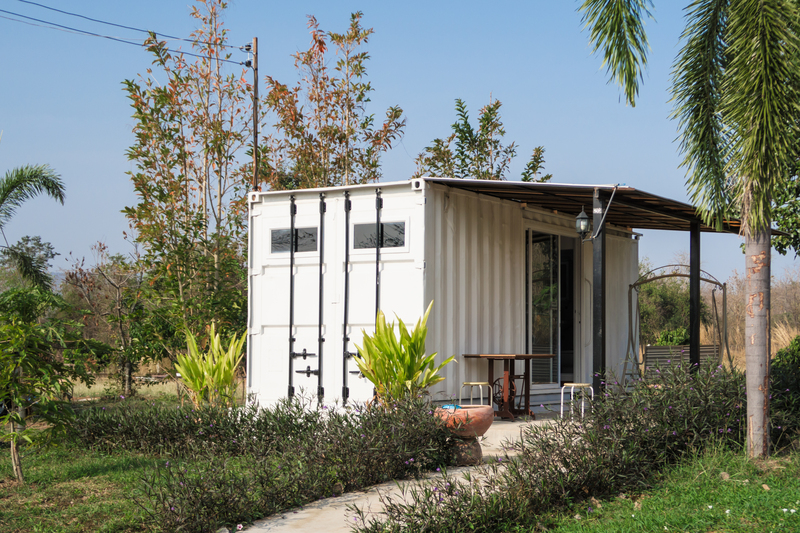The Definitive Skip Hire Guide: Everything You Need to Know
Whether you're tackling a home renovation, clearing out your garden, managing construction debris, or running a major commercial project, skip hire can be the waste management solution you need. This comprehensive guide will help you understand the ins and outs of skip hire, including types of skips, pricing, permits, eco-friendly disposal, and tips to get the most value for your money. If you're searching for the ultimate skip rental guide--look no further!

What is Skip Hire?
Skip hire refers to the process of renting a large, open-topped waste container (called a skip) to collect and remove unwanted materials. Instead of making multiple trips to the dump, you can dispose of all your waste easily in one go. Once the skip is full, the provider collects and disposes of the contents efficiently and responsibly.
Why is Skip Hire So Popular?
- Convenient Waste Removal: Whether for domestic or commercial use, skip hire offers an easy way to manage large volumes of rubbish.
- Time-Saving: Avoid countless trips to recycling or landfill sites.
- Cost-Effective: Hiring a skip is often more affordable than alternative waste removal solutions.
- Versatile: Suitable for garden waste, building rubble, household clearances, and industrial projects.
The Different Types of Skips
Choosing the right skip for your needs depends on the scale of your project and the kind of waste produced. Skips come in various sizes and formats, each with their own specific uses.
Skip Sizes Explained
- Mini Skips (2-3 Yard): Perfect for small home clean-ups or garden waste. Fits approximately 25-35 black bags.
- Midi Skips (4-5 Yard): Suitable for bathroom or kitchen refurbishments. Holds about 35-45 bin bags.
- Builder's Skips (6-8 Yard): The most popular choice for construction work and home renovations. Can contain up to 65 bags.
- Large Skips (10-16 Yard): Ideal for bulky items or extensive renovations. Holds up to 140+ bags.
- Roll-on Roll-off Skips (20-40 Yard): Used primarily for commercial projects and large-scale clearances.
Open vs. Enclosed Skips
- Open skips: Easy to fill and typically used for general construction, refurbishment, or garden waste.
- Enclosed skips: Have a lockable lid, preventing unauthorized use and keeping waste secure (ideal for hazardous or confidential materials).
Specialised Skips
- Wait and Load: The lorry waits while the skip is loaded, eliminating the need for a permit.
- Drop Door Skips: Feature a drop-down door for wheelbarrow access--perfect for soil, rubble, or heavy items.
What Waste Materials Can You Put in a Skip?
Not all waste is permitted in a skip; being aware of restrictions helps avoid extra charges or disposal issues.
Accepted Waste
- General household rubbish
- Garden waste (soil, branches, grass clippings)
- Wood, plastics, and packaging materials
- Bricks, rubble, and hardcore (in prescribed skip types)
- Old furniture and fittings
Prohibited Waste Materials
- Asbestos
- Paints, solvents, and chemicals
- Batteries and electrical appliances (WEEE waste)
- Tyres
- Gas cylinders
- Medical or biological waste
- Plasterboard (usually only in dedicated skips)
When in doubt, always consult your skip hire provider for a full list of prohibited items.
How Much Does Skip Hire Cost?
The price of skip hire is influenced by several factors:
- Skip size - larger skips cost more.
- Location - prices vary between regions.
- Duration - how long you keep the skip affects the charge.
- Permits - needed if placing the skip on public land.
- Type of Waste - hazardous or mixed waste may incur extra charges.
As a general guide:
- Mini skip: ?70-?120
- Midi skip: ?120-?200
- Builder's skip: ?200-?350
- Large skip: ?250-?450
Many skip hire companies offer online quotes, and it's a good idea to check for special deals or discounts for longer-term hires.
Do You Need a Skip Permit?
If your skip is to be placed on any public highway or roadside, you'll need a skip permit from your local council. The hire company can usually arrange this for you at an extra cost (typically between ?20-?70, depending on your area and duration).
- Private land (e.g. driveways or gardens): No permit required.
- Public land or road: Permit required.
Remember to factor in both the time and cost of obtaining the permit when planning your skip hire.
Skip Hire Safety Tips
Ensuring safe skip use protects you, your property, and the public. Here are essential safety tips:
- Do not overfill: Waste should not tower above the skip's rim.
- Evenly distribute weight: Avoid stacking heavy items on top.
- Keep access clear: Don't block walkways or driveways.
- No dangerous/hazardous items: Follow waste guidelines strictly.
- Use warning lights and cones: If skip is on a public road, it must be visible at night.
Eco-Friendly and Responsible Disposal
Many reputable skip hire companies aim to recycle over 80% of skip waste to reduce landfill usage and protect the environment. Make sure to use a provider with a committed recycling policy. Here are tips for greener waste management:
- Segregate recyclables before placing them in the skip.
- Use designated skips for plasterboard or electronic waste where required.
- Request documented disposal proof for peace of mind.
How to Choose the Right Skip Hire Company
Not all skip hire companies are the same. To ensure a hassle-free experience, always:- Check for valid licenses and insurance.
- Read third-party reviews and testimonials.
- Compare quotes and ask about hidden charges.
- Confirm clear recycling and disposal policies.
- Assess delivery and pickup flexibility.
FAQs: Your Skip Hire Questions Answered
How long can I keep a skip for?
Standard hire periods range from one to two weeks, but extensions are often available if needed. Check with your provider for daily or weekly rates.
Can I put electrical items in a skip?
Normally, electrical items are not permitted in general skips; they must be taken to a specialist recycling centre. Some companies offer separate skips for WEEE (Waste Electrical and Electronic Equipment).
What if I need the skip collected early?
Most providers offer *flexible collection services*. Simply call the company, and they'll arrange an early pickup.
How high can I fill my skip?
You must not fill a skip above the "level load" line. Overfilled skips may not be collected or could incur surcharges.
Do I need to be present for delivery and collection?
Usually, no. But make sure the location is accessible and clear of obstacles to avoid delays.
Top Tips to Save Money on Skip Hire
- Share the skip with a neighbour to split costs.
- Organize your waste to avoid hiring multiple skips--opt for the correct size first time.
- Avoid fines by keeping to prohibited item guidelines.
- Book in advance for the best rates.
- Reuse or donate large items before disposal, reducing overall volume.
The Skip Hire Process: Step-by-Step
- Assess your waste (type and amount) for accurate skip size selection.
- Get quotes from local skip rental providers.
- Check permits and book if needed.
- Prepare your site for delivery (enough space, clear access).
- Fill the skip responsibly--no dangerous or prohibited items.
- Arrange collection when finished for prompt removal.

Common Skip Hire Mistakes to Avoid
- Choosing the wrong size: Over- or underestimating can increase costs. When unsure, err on the larger size.
- Ignoring permit requirements: Skipping this step can lead to fines or removal delays.
- Mixing prohibited waste types: This leads to surcharges or even refusal of collection.
Conclusion: Make Skip Hire Work for You
The definitive skip hire guide gives you all the tools and information required to make the best choice for your next project. Whether you're clearing out your home, improving your garden, tackling a build, or handling commercial waste, using the right skip hire service ensures the process is efficient, safe, and cost-effective.
For reliable, affordable, and environmentally responsible skip hire solutions, always choose a reputable provider, comply with local regulations, and prioritize recycling. With these skip hire best practices, your waste management needs will be simpler and greener than ever!